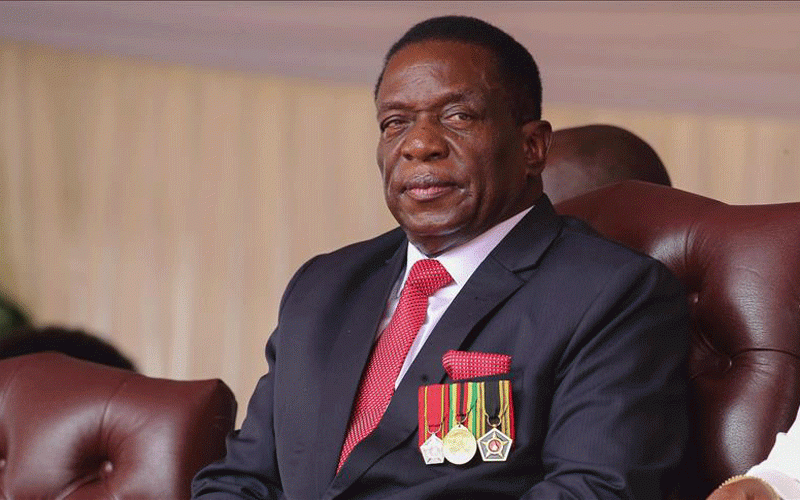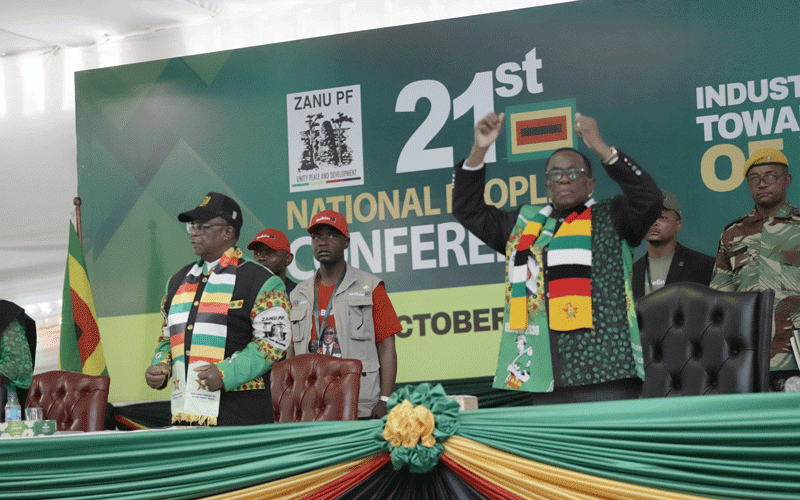
PRESIDENT Emmerson Mnangagwa yesterday doled off-road twin-cab vehicles to traditional leaders when many families are skipping meals because of hunger caused by the El Niño-induced drought.
A latest report by Famine Early Warning Systems Network indicates that families in rural areas are skipping meals as a coping mechanism as the effects of the drought take their toll.
Zimbabwe is currently grappling with one of the worst droughts in decades, with Mnangagwa in April sending out a begging bowl to raise over US$2 billion to avert starvation in Zimbabwe.
He later revised the figure to US$3 billion.
Public Service, Labour and Social Welfare deputy minister Mercy Dinha recently confirmed that the government is actively seeking support to feed hungry citizens.
However, the government decided to spend on trucks for chiefs, with Mnangagwa handing over the second batch as replacement for 90 vehicles in the capital yesterday.
A brand new 4x4 Isuzu D-Max twin-cab off-road vehicle goes for around US$70 000 on the local market, pushing the figure for all the vehicles to above US$17 million for 237 traditional leaders in the country.
Speaking at the handover ceremony, Mnangagwa promised to continuously pamper the traditional leaders.
- NoViolet Bulawayo’s new novel is an instant Zimbabwean classic
- Jah Prayzah, Zanu PF rekindles ‘lost love’
- Bank workers appeal to Ncube for tax relief
- Indosakusa marks 21-year anniversary milestone
Keep Reading
“This is part of my administration’s grand plan to uphold the dignity of our chiefs and traditional leaders, who are the historical custodians of our land and culture, as they carry out their duties,” he said.
“It is also in line with the government policy which has seen us giving the chiefs vehicles after every five years.”
Added Mnangagwa: “The policy is premised on the understanding that chiefs’ functions contribute directly and indirectly towards the attainment of Vision 2030, which seeks to achieve an upper-middle-income economy for our people.
“Further, the facility ensures that the chiefs can carry out their critical duties more efficiently and effectively.”
Mnangagwa revealed that he had directed government departments to do “favours” to the traditional leaders.
“Further, my administration has directed government ministries and departments to provide other services and utilities that uplift the livelihoods and standing of traditional leaders in general,” he said.
“These include construction and maintenance of access roads to chiefs homesteads, electrification of chiefs homes, provision of water and sanitation facilities, as well as the tillage programmes, among other services.”
Early this month, Finance minister Mthuli Ncube confirmed that government spent unbudgeted millions buying vehicles for the chiefs in a development that left their parent ministry in the red.
Ncube justified the unbudgeted expenditure, stating that the vehicles are essential tools of trade for chiefs to attend to their constituents.
“It must be noted that the Council of Chiefs incurred excess expenditures on its vote due, in part, to the unbudgeted procurement of 237 vehicles for chiefs as well as review of allowances and other related national events,” Ncube said.
Social commentator Pardon Taodzera said the traditional leaders were being rewarded for campaigning for Zanu PF ahead of last year’s elections.
“It is sad that we have a government that is always politicking. There are real issues of hunger, lack of medicine, but the government decides to splurge on traditional leaders,” he said.
Other critics said the vehicles were part of a wider plot to rally the chiefs behind the ruling party’s bid to extend Mnangagwa’s stay in power until 2030.
Zanu PF is busy comandeering all its party structures to push for Mnangagwa to stay in power beyond 2028 when his constitutionally-mandated term comes to an end.
This is despite that he has told the media several times that he will take a rest in 2028 when his term ends.
In a policy brief titled Rights and Traditions: Traditional Leadership, Politics and Human Rights In Zimbabwe released in June last year, the Zimbabwe Human Rights Association said traditional leaders were often characterised as “willing enablers” of the ruling party.
“This is the fourth time he has done so since coming to power through a military coup. This is happening while hospitals lack water, medication, and equipment, all of Zimbabwe’s urban cities and towns have no clean drinking water, the country has the highest inflation rate in the world and unemployment stands at 95%,” outspoken government critic Hopewell Chin’ono commented.










